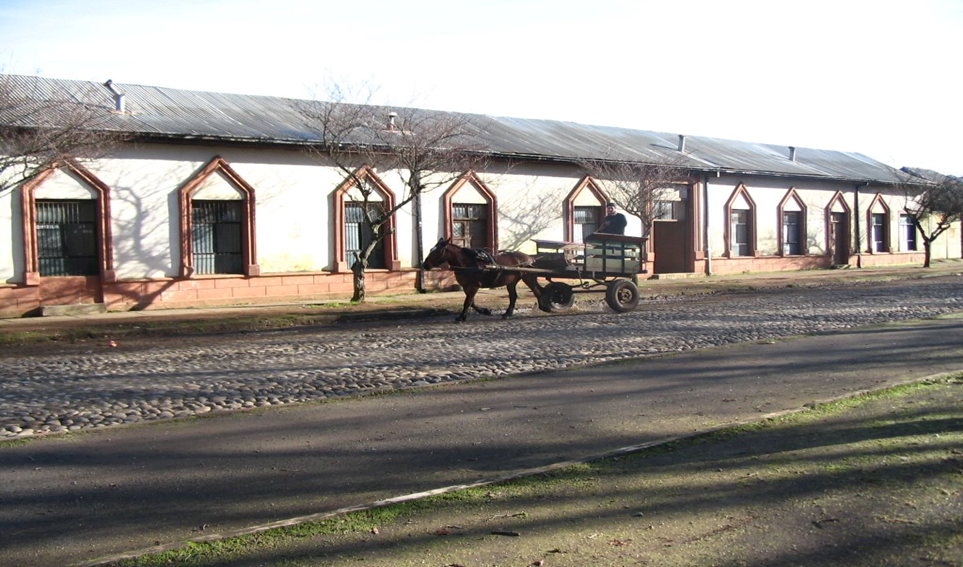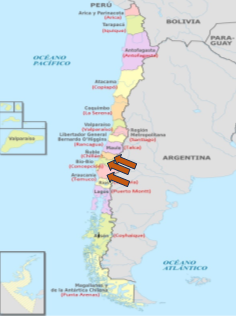Projects

SOCIDET PROJECT – CHILE
The SOCIDET project (Civil Society for Territorial Development) is a project co-financed by the European Union to promote the inclusive, sustainable, and resilient territorial economic development of the regions of Ñuble, Biobío and La Araucanía in Chile.

The overall objective is to strengthen CSOs as independent actors of good governance and development, generating participatory and independent democratic spaces, and promoting inclusive dialogue for sustainable territorial socioeconomic development.
The specific objective is to strengthen the capacities of CSOs for the economic, political, social and environmental inclusion of young people and women in the regions of Ñuble, Biobío and La Araucanía, and their participation in local public policies towards inclusive sustainable and resilient territorial development, with particular reference to the promotion of local agrobiodiversity.
ILS LEDA is a European partner of a partnership which includes CETSUR, the applicant organization, and two other Chilean NGOs: Conciencia Sur and Fundación El Arbol.
The target groups are: 400 women and youth, 100 CSO representatives, 100 producer and artisan representatives, 400 community actors, 60 municipal representatives, 40 public actors, 10 media, 10 academic actors, 10 opinion leaders.
The Project has a duration of three years.
The expected results are:
R1. Strengthened capacities of CSOs for the design, execution and evaluation of local economic development strategies and plans, according to the focus of inclusion, sustainability and resilience, and aimed at valuing the territorial potential (knowledge, trades and endogenous resources) of the target regions.
R2. Strengthened capacities for the generation of food systems supported by agroecological production, promotion of local agrobiodiversity and Food Sovereignty, in spaces resilient to climate change.
R3. Created enabling multi-stakeholder governance environments between CSOs, local governments and other public-private actors to implement strategies and facilitate opportunities for men and women in resilient socio-ecological environments.
The target groups of the action belong to three regions of the central-southern zone of Chile: Ñuble, Biobío and La Araucanía and are: a) 400 women and young people participating in CSOs and coordination networks on rural, indigenous, protection and socio-environmental defense; b) 100 CSO representatives; c) 100 representatives of small-scale agroecological producers, artisans, masters of trades and guardians of traditional knowledge linked to the conservation of agrobiodiversity; d) 400 community actors15 inhabitants of environments affected by extractivist development models; e) 10 media outlets; f) 10 actors from universities and research centers; g) 10 opinion leaders; h) 60 representatives of municipalities, in charge of areas of the environment, culture, local economic development, productive development, and i) 40 public actors belonging to ministerial secretariats and governments
The main activities are:
Result 1
A1. Awareness-raising and training in sustainable, inclusive and resilient Territorial Development Models, the EU Approaches, Participatory evaluation models of endogenous potential and territorial value chains and models to formulate development strategies
A2. Assistance in the formation and organization of 6 focus groups, one for each prioritized territorial value chain -CVT-, including CSOs, producers, local administrations, service providers, educational and cultural entities, and training in the application of Ils Leda's RESCO Method on participatory diagnosis of endogenous potentialities
A3. Support to the 6 focus groups in carrying out 6 CVT diagnoses, using the RESCO tool, which plans to analyze 7 factors and includes 125 variables and corresponding design of CVT strategies
Result 2
A4. Awareness-raising and training in: a) traditional arts and crafts in local food systems and peasant agroecology, seed curatorship and traditional cuisine (local knowledge and peasant and indigenous ethnoecological relations), b) Biodiverse and resilient landscapes, c) Territorial restoration and local management water, d) Socio-ecological transition and regenerative economies, through participatory socio-ecological and agri-food diagnoses in the prioritized territories, the implementation of training programs, meetings, and seed exchanges to strengthen agrobiodiversity.
A5. Organization of focus groups for the design and implementation of a participatory strategy in generating local production and consumption networks (supply and demand of agroecological foods and socio-environmental services):
A6. Design of territorial strategies, operational plans and implementation of impact projects in watershed restoration, local water management, identification, mitigation and recovery of risks from forest fires, which contribute to adaptation and socio-ecological resilience.
Result 3
A7. Training of CSOs and other actors in multi-stakeholder governance models, characteristics, scopes, objectives, and participation mechanisms, and EU experiences (territorial pacts, negotiated planning, development agencies, others) and international experiences (alliances, decentralized cooperation, work tables, territorial networks, among others).
A8. Promotion of three multi-actor territorial mechanisms (1 per region), identifying the optimal organization, shared objectives, priority actions to implement the previously shared strategies, and the possible organization of an integrated service system model, through a one-stop-shop.
A9. Identification and design of public policy lines, plans, programs and projects for sustainable development in the target regions, consistent with the objectives of this action.
A10. Implementation of a multi-level social communication strategy on and off line and a digital platform to promote full CSO participation in territorial governance processes, a strategy for systematization, monitoring and measurement of impacts and an administrative and financial management strategy
